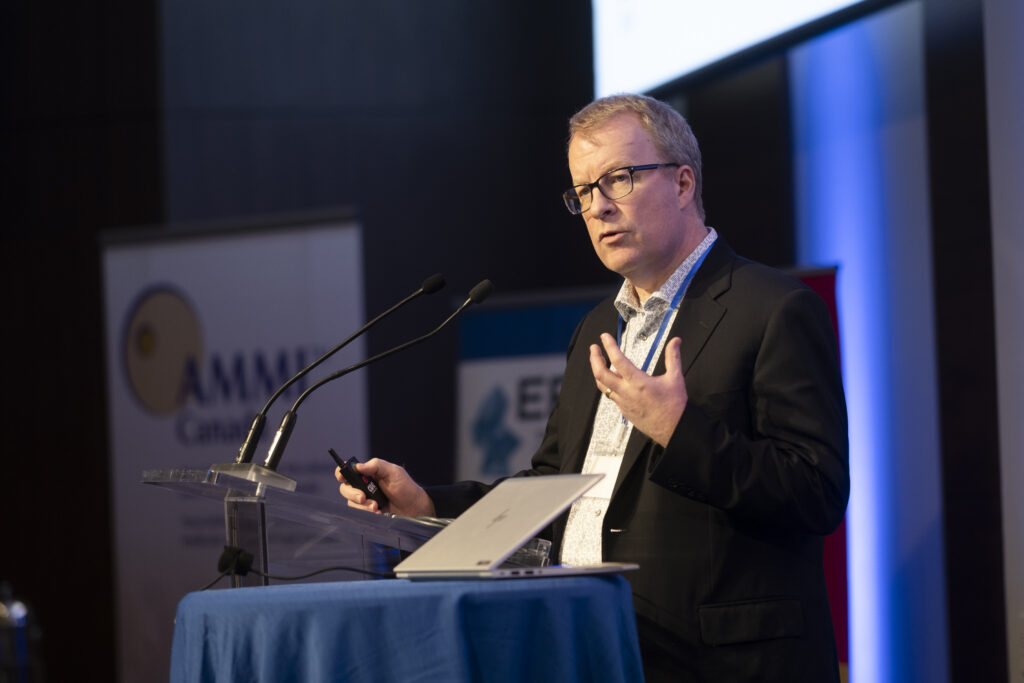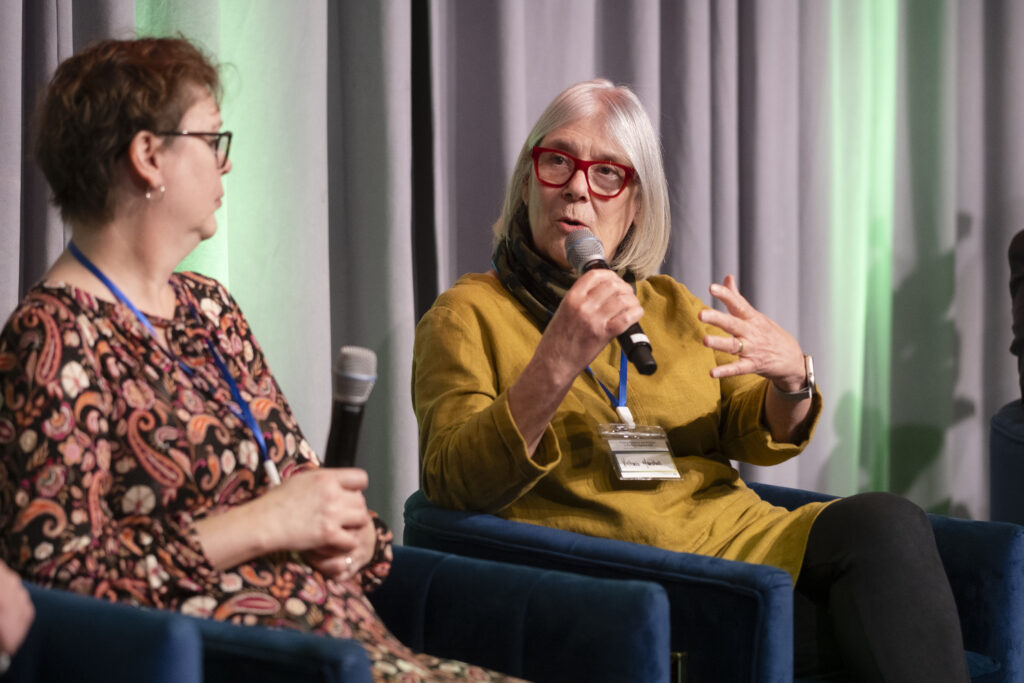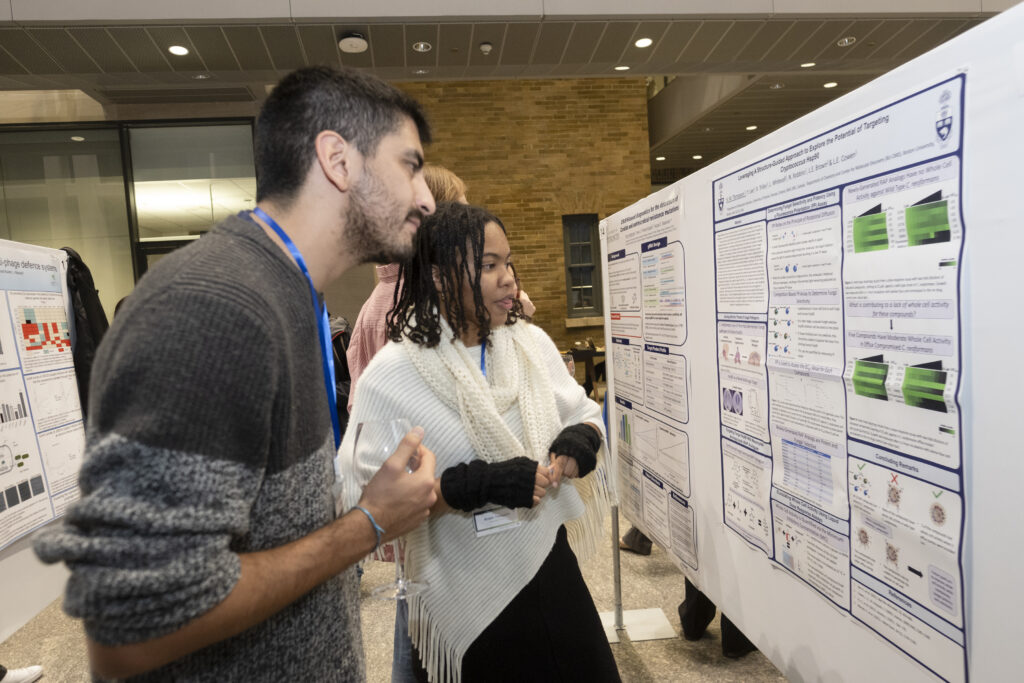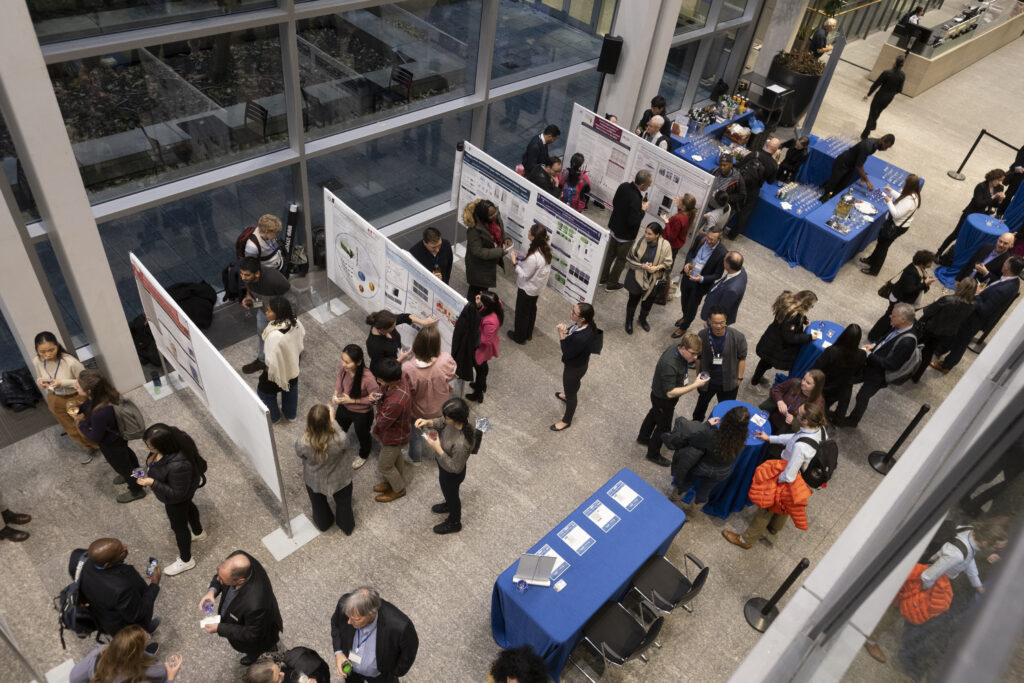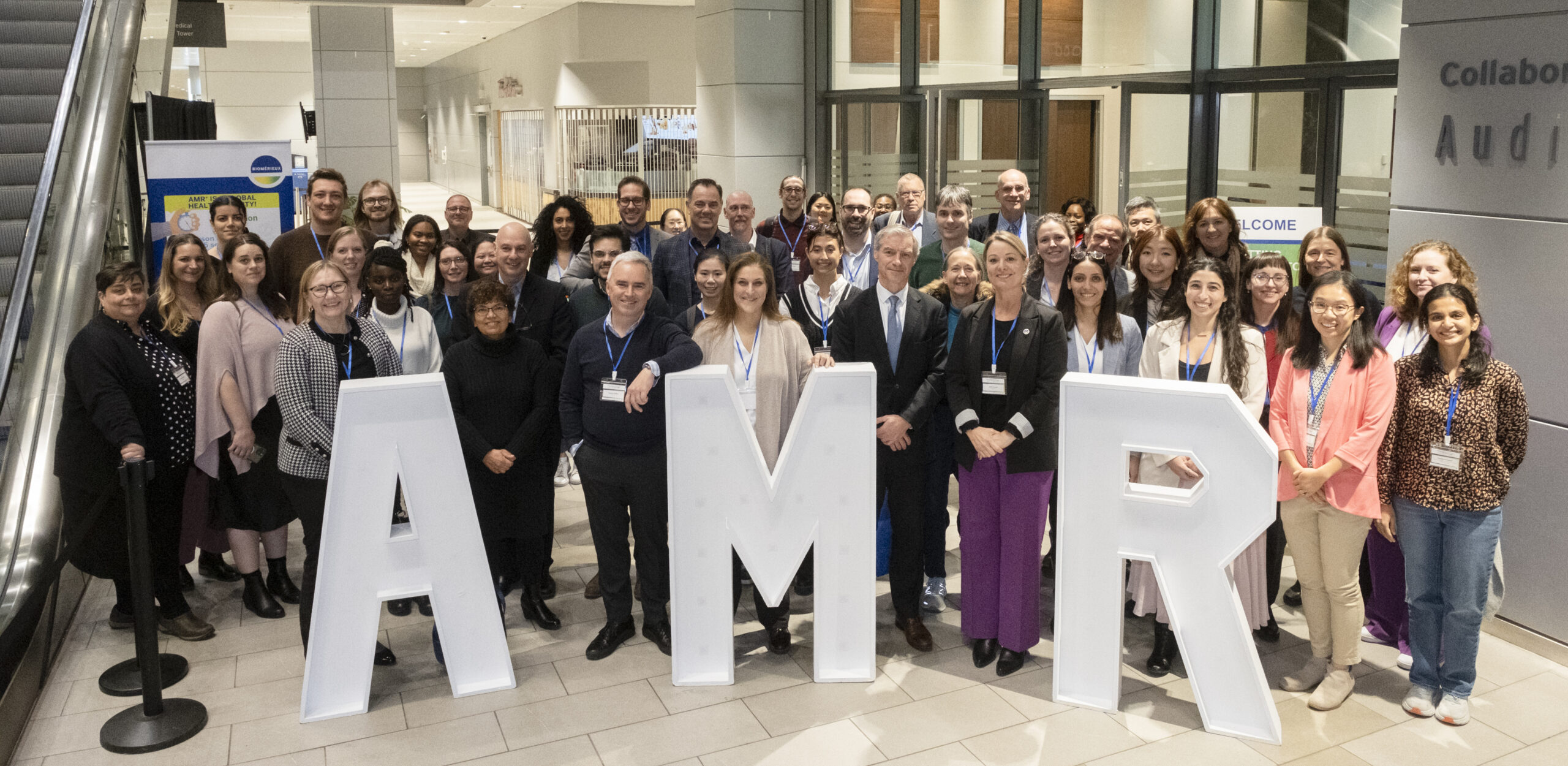December 7, 2023
By Betty Zou
The Emerging and Pandemic Infections Consortium, along with partners bioMérieux Canada, the AMR – One Health Consortium and the Association of Medical Microbiology and Infectious Disease Canada (AMMI Canada), recently co-hosted the second annual symposium on antimicrobial resistance (AMR).
The two-day event, which took place during World AMR Awareness Week in November, brought together leaders in human and animal health, research and industry under the theme of Putting evidence into practice in the fight against AMR.
The World Health Organization has declared AMR one of the top 10 threats to global public health. In 2019, an estimated 4.95 million deaths were associated with AMR, of which 1.27 million were directly attributable to infections caused by drug-resistant bacteria.
Earlier this year, the Public Health Agency of Canada released the Pan-Canadian Action Plan on AMR, which describes key action items and target outcomes to address AMR across the five pillars of research and innovation, surveillance, stewardship, infection prevention and control, and leadership.
The action plan provided the framework for the first day of the symposium, which was accredited by AMMI Canada. With talks from experts in human health and veterinary medicine, the sessions offered attendees an opportunity to understand the action plan from a One Health perspective and featured talks by EPIC members Allison McGeer and Justin Nodwell as well as EPIC director Scott Gray-Owen. The day ended with a networking reception and a poster session where over 20 trainees presented their AMR-related research.
Highlights from the second day included talks from EPIC members Landon Getz and Vanessa Tran. Getz is the inaugural recipient of the GSK EPIC Convergence Postdoctoral Fellowship on AMR and shared his cross-disciplinary work on phage therapy to address the growing threat of AMR. EPIC member Larissa Matukas also moderated a multidisciplinary panel discussion on the impact of diagnostic stewardship on antimicrobial stewardship programs in hospital and community settings.
The symposium ended with a panel discussion on advocacy and public relations strategies to bring the silent pandemic of AMR into the public limelight. Moderated by EPIC member Susan Poutanen, the panel included Paul Eckford (Cystic Fibrosis Canada), Laura Greer (Hill+Knowlton Strategies), Ryan Lock (GSK) and Victoria Marshall, whose drug-resistant urinary tract infection led her to becoming the first patient in Canada to be treated with phage therapy. The conversation emphasized the importance of building a coalition of like-minded groups and showcasing the human impact of AMR to push governments and individuals to take action against this urgent public health challenge.
Bringing together over 370 in-person and virtual attendees, the 2023 AMR symposium builds on the successes and key lessons from last year’s event.
“Antimicrobial resistance threatens so many aspects of health and society including food production and common medical procedures like hip replacements and C-sections,” says Gray-Owen, who is also a professor of molecular genetics at the University of Toronto’s Temerty Faculty of Medicine. “We are grateful to our partners for their support in putting on this year’s AMR symposium, which brought together stakeholders from across sectors and disciplines to exchange ideas and foster new collaborations. I’m hopeful that the learnings and connections from the event will lead to meaningful actions to tackle the growing burden of AMR in Canada and around the world.”
